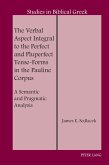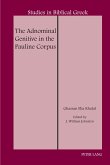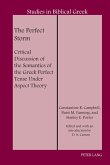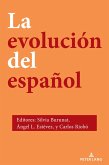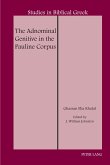This book argues that the verbal aspect of the Greek Perfect is complex, involving not one but two aspects, where the perfective applies to events and the imperfective applies to states. These two aspects are connected to specific morphemes in the Perfect tense-form. This study analyses Perfect tense-forms in discursive text by focusing on the Pauline Corpus. The method is grounded in grammaticalisation studies and informed by morphology, comparative linguistics, and historical linguistics. The argument is further supported by a corpus-based study showing both the Greek Perfect tense-form use in letters over an 800-year period and adverb collocations of the Perfect tense-form. The adverb collocations establish when a Perfect is used for an event or for a state. This study challenges other verbal aspect studies that find only one verbal aspect to explain the Greek Perfect. This study situates the Pauline Perfect tense-form usage within a spectrum of other letter writers, and finds that within the Pauline Corpus the Perfects within supplemental clauses are more likely to use active lexemes than other letter writers. This study also finds that most of the Perfects used in letters are supplemental to the mainline and are often backgrounded rather than foregrounded.
Dieser Download kann aus rechtlichen Gründen nur mit Rechnungsadresse in A, D ausgeliefert werden.
"James Sedlacek's research offers a fresh way forward in understanding the Greek synthetic perfect tense-form based on his thorough investigation of both recent and older scholarship on the topic, on his own comprehensive analysis of the Pauline Corpus, and comparison between Paul and a diachronic Greek epistolary and moral literature corpus from 400 BCE to 400 CE. His work is both systematic and clear, complex and balanced, interdisciplinary and most innovative in arguing for the presence of both perfective and imperfective aspects in the Greek synthetic perfect." -Revd. Svetlana Khobnya, Senior Lecturer in Biblical Studies and Languages, Nazarene Theological College, Manchester



